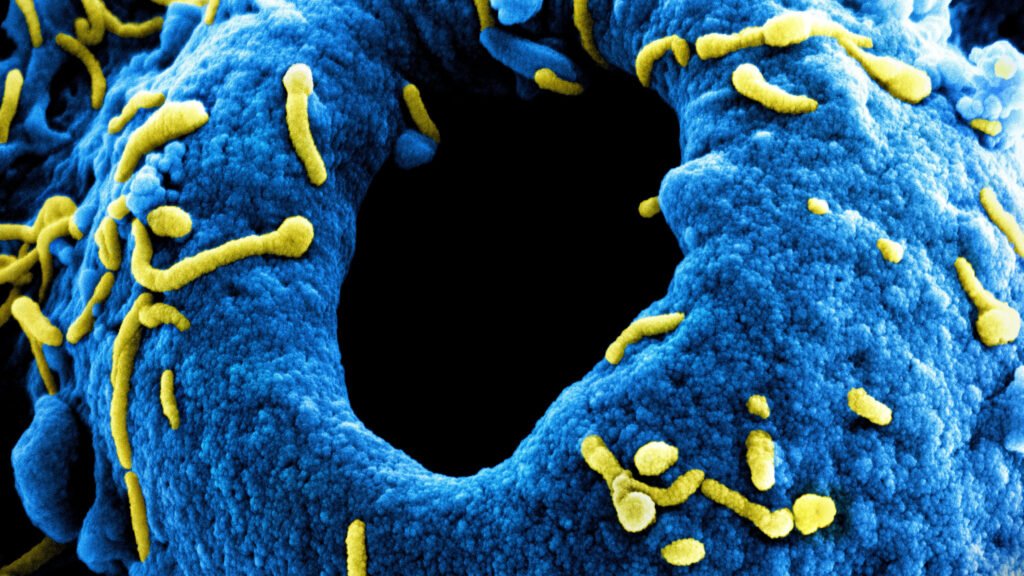Experimental vaccines and treatments to combat the deadly Marburg virus will arrive in Rwanda starting this weekend and will be used in clinical trials expected to begin soon, U.S. government officials confirmed Friday.
Currently, there are no approved vaccines or treatments to prevent or treat Marburg virus, a relative of the Ebolavirus family that infects and causes illness like Ebola. Although Marburg’s outbreaks are typically small, the two infections have similar fatality rates.
Rwanda has never before dealt with an outbreak of Marburg disease, and the number of infected people has already reached 41, making it the largest outbreak in its history. Twelve of them died. More than 80% of the cases detected are healthcare workers, many of whom were infected at major health facilities in the capital, Kigali.
The country has agreed to conduct clinical trials, demonstrating its readiness to act quickly.
“We are aiming to start within the next few days,” Health Minister Sabin Nsanzimana said Thursday at a press conference hosted by the Africa Centers for Disease Control and Prevention. “We’re talking about saving the lives of health care workers.”
The outbreak of Marburg virus in Rwanda raises concerns about the possibility of international spread of infection.
Nsanzimana sidestepped questions about the design of the trials, including whether they could use multiple vaccines or treatments and be compared to each other or to a placebo.
At least two treatment options are expected to become available in the country: Gilead Sciences’ antiviral drug remdesivir and MapBio’s experimental monoclonal antibody MBP-091.
Remdesivir is approved in the United States to treat Covid-19 and was previously tested as a treatment for Ebola. Nsanzimana said Gilead is providing 5,000 doses of the drug, which is sold commercially as Veklury.
A spokesperson for the Office of Strategic Preparedness and Response, a division of the Department of Health and Human Services, said the U.S. government is providing a certain amount of vaccines and monoclonal antibodies. Both are being developed with funding from the Biomedical Advanced Research and Development Authority (BARDA).
Sign up for the morning round
Understand how science, health policy, and medicine shape the world every day
The single-dose vaccine was originally designed at the National Institutes of Health’s Vaccine Research Center and is currently being developed by the nonprofit Sabin Vaccine Institute. The institute announced that it plans to send 700 doses of the vaccine.
Several experimental vaccines are in development to prevent Marburg disease, but the Sabin vaccine is believed to be the most advanced in the pipeline. The institute is currently conducting Phase 2 trials in Uganda and Kenya.
Nancy Sullivan, director of the National Institute of Emerging Infectious Diseases at Boston University, led research on vaccine design at her previous job at VRC. She also played a role in the extensive work undertaken by the World Health Organization and partners in recent years to ensure that, if needed, vaccines and treatments for rare diseases such as Marburg disease could be quickly moved into testing.
“We are pleased that, thanks to WHO’s efforts, the field is now ready to respond to the outbreak,” Sullivan told STAT.
‘Against all odds’: The inside story of how scientists on three continents created an Ebola vaccine
Amy Finnan, CEO of the Sabin Vaccine Institute, agreed that the preparatory work appears to be paying off here.
“I think a number of factors have come together to allow us to move forward at lightning speed,” Finan said, adding that the vaccine is already in Phase 2 trials elsewhere, so starting a new trial would be an option. He pointed out that he had the necessary documents on hand.
Another advantage was that the lab had doses of the vaccine available, which is not always the case with experimental vaccines. IAVI (International AIDS Vaccine Initiative) is also developing the Marburg vaccine, but they are currently manufacturing doses and do not have any to send.
The University of Oxford’s Oxford Vaccine Center, which designed what became AstraZeneca’s coronavirus vaccine, is also developing a Marburg vaccine. STAT asked about the status of the effort and whether there are doses available for Rwanda, but has not yet received a response.
Finan also praised Rwanda for moving quickly to quell the outbreak, which was first identified over the weekend.
“Another hugely important element that I can’t stress enough is our partnership with the Rwandan government,” Finan said. “Rwanda has a medical infrastructure that supports very rapid movement, and I think that really helped us.”

